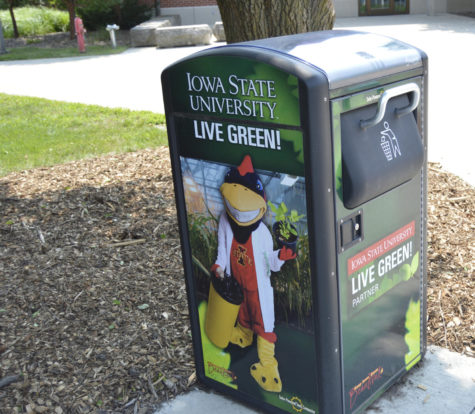Iowa State students sustain lives in rural Uganda
March 1, 2012
Sean Lundy, junior in global resource systems and nutrition and wellness, remembers the sight of small children with bloated stomachs and stunted growth living in tiny, crowded mud huts. They had cuts on their arms that wouldn’t heal properly, most likely from damaged immune systems. This is not uncommon for a country where 20 percent of children younger than 5 are severely to moderately underweight and 38 percent of children younger than 5 are severely to moderately stunted, causing 14-year-olds to be the height and size of a healthy 7-year-old.
Every summer, several students from Iowa State travel across the globe to Uganda. Although the African country is just smaller than Oregon, it is home to approximately 24.2 million people, 88 percent of which is rural. It is in the rural areas of Uganda that ISU students, such as Lundy, find themselves. Five-and-a-half week service-learning trips allow students hands-on experience in five different development projects with Ugandan school children.
Work with irrigation aims to ease the burden on children who have to walk 100 meters a day to get water. Through agroforestry, they work with the young students to plant trees as wind breaks around the school, making for better planting terrain and subsequently more aesthetically pleasing surroundings. Other projects include work with poultry and beekeeping.
Lundy was one of the students to work with the health and sanitation project. Focusing mainly on the large issue involved with girls’ menstruations, the group set to work creating a reusable napkin. The following year, a new group of students took over the project, using and adapting the original plans.
From here, the opportunities continue. As a global resource systems student, Lundy returned to Uganda for an internship, this time working under VEDCO, a Ugandan non-governmental organization, and its partner, the Center for Sustainable Rural Livelihoods.
Here, he continued his work to better the lives of Ugandan children by working with fellow ISU student Brian Castro to take anthropometric measurements such as height, weight and mid-upper-arm circumference as well as socioeconomic statistics. Their aim was to assess the effectiveness of a school feeding program and advise on vitamins that should be added to meals. Lundy hopes to return next year and continue his research toward decreasing malnutrition and helping sustain the lives of children in rural Uganda.









